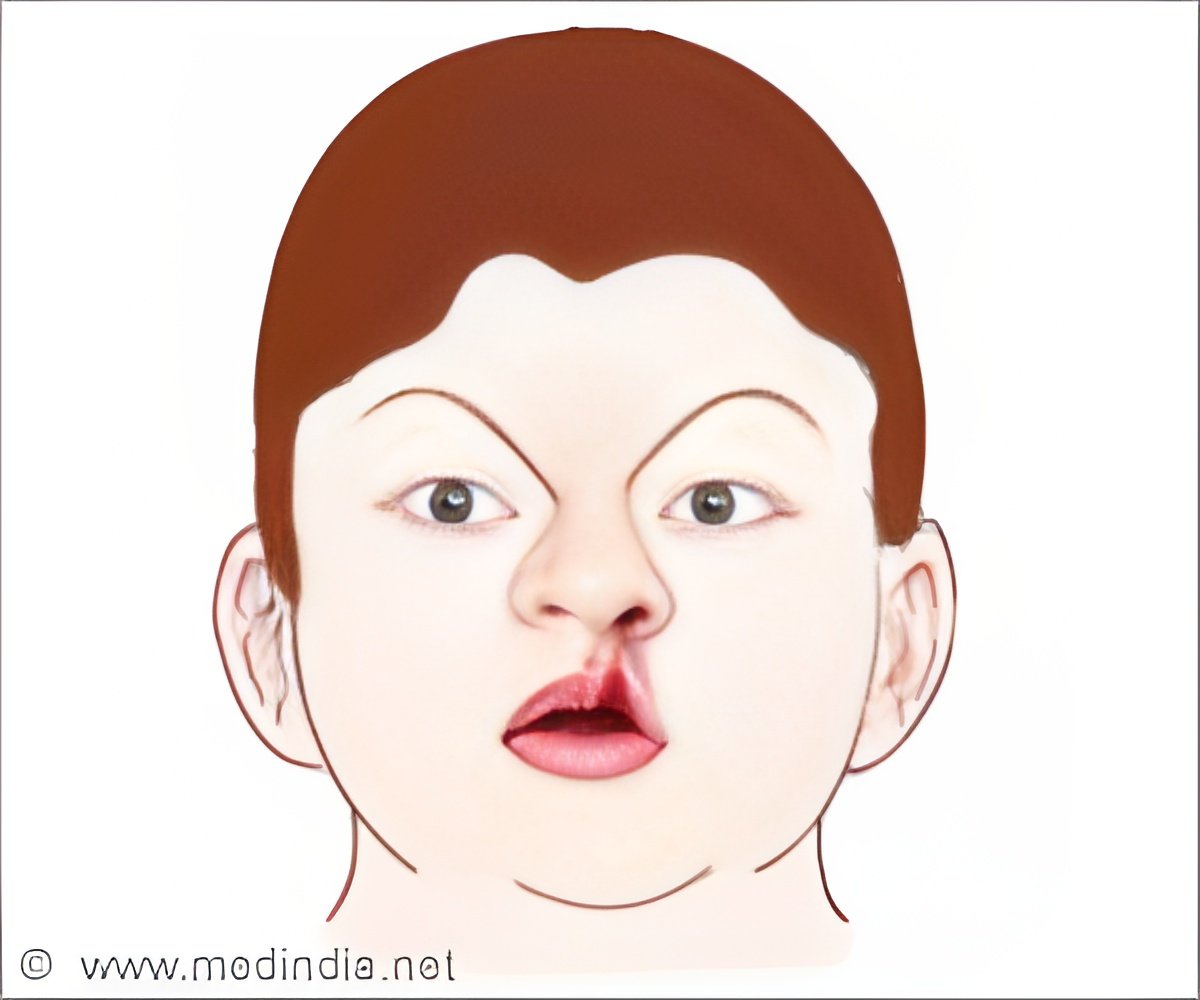Mutation in the gene intraflagellar transport 88 (IFT88) is thought to cause disorders associated with abnormalities in human face and skull development.

- Cleft lip and palate is a common congenital anomaly that impacts survival, feeding, speech and has long-term implications if not repaired early and correctly
- A gene intraflagellar transport 88 (IFT88) associated with cleft lip and palate has been identified and parents with mutation in this gene have higher chance of giving birth to children with cleft lip and palate.
- Such patients should be given consultations so that they can have surgery lined up and seek out proper care for their newborns.
"Finding this birth defect in every single child in a family is like catching lightning in a bottle because it allowed us to pinpoint the gene mutation that is probably responsible," said Yang Chai, senior author of the study and director of the Center for Craniofacial Molecular Biology at the Herman Ostrow School of Dentistry of USC.
"Our finding that the gene IFT88 is involved in cleft lip and palate is unlikely to be mere coincidence." Chai added.
The study involved three siblings,two boys and a girl, who were born with cleft lip and palate. Their mother did not have the congenital disorder, but their father did. Their orofacial abnormality was repaired through surgery.
Cleft lip and palate is the most common birth defect in the U.S, according to data from the Centers for Disease Control and Prevention. Around 7,000 children are born with this condition annually.
Genome sequencing
"If someone carries this mutation, they may have a higher chance of giving birth to children with cleft lip and palate," said Chai, associate dean of the Ostrow School. "Doctors can provide consultations to these patients before they give birth, so parents can have surgery lined up and seek out proper care for their newborns."
Other congenital diseases tied to a genetic disorder of cilia on embryonic cells include retinal degeneration, hearing defects, polydactyly (extra fingers or toes at birth) and brain malformations.
The research team also examined mice which had a mutation in IFT88 gene and found that they exhibited severe craniofacial defects including cleft lip and palate and tongue agenesis.
"In our study, however, the animal model and the human mutation match," Chai said. "In the animal model, there is no doubt. We have shown that 100 percent of the mice who have a single mutation in IFT88 have cleft lip and palate." Since this study involved only three children, more investigation is needed to validate the findings.
The study was a collaborative effort between the Ostrow School of Dentistry, the Keck School of Medicine of USC, Children’s Hospital Los Angeles and the nonprofit Operation Smile and the results are published in the journal Human Molecular Genetics.
Reference
- Yang Chai et al. Intraflagellar transport 88 (IFT88) is crucial for craniofacial development in mice and is a candidate gene for human cleft lip and palate. Human Molecular Genetics; (2017) DOI: 10.1093/hmg/ddx002
Source-Medindia












